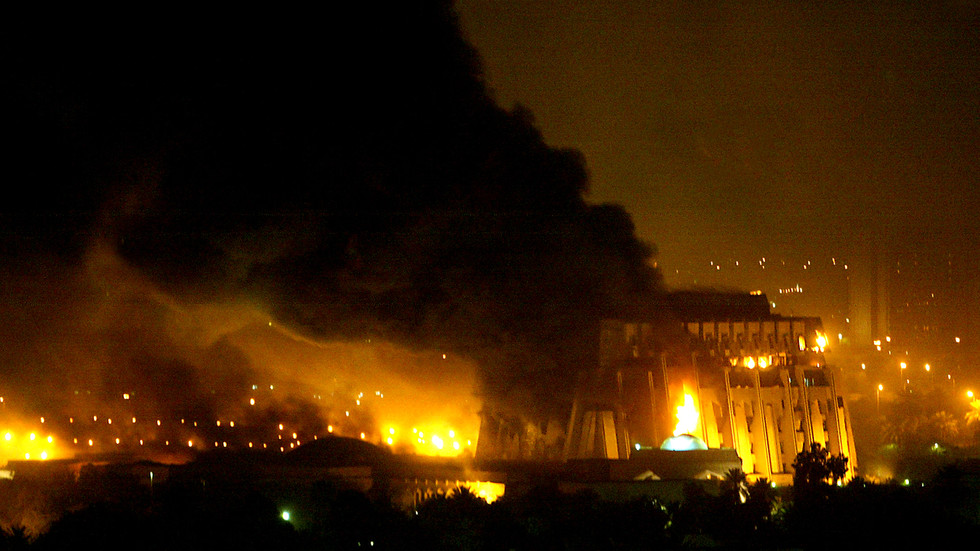China signed a deal to build 1,000 schools across Iraq shortly after the US announced the end of its combat mission in the country, having left over a million Iraqis dead.
Under the deal signed last week with the Iraqi government, the Power China company will build 679 schools and Sino Tech will construct the remaining 321.
This news comes in the context of a diminishing American role in Iraq, with the US having just announced an end to its “combat mission” in the country and a transfer of its forces – about 2,500 soldiers plus an additional 1,000 coalition troops – to an “advisory role” despite calls to fully withdraw.
Perhaps there’s no better juxtaposition for how the US and China conduct their foreign relations than these parallel developments in Iraq.
Of course, there’s a ton of context here with the American side. In 2003, the United States under former President George W. Bush invaded Iraq under false pretenses, alleging that the country possessed “weapons of mass destruction” and beginning the first stage of what would be a protracted conflict of nearly nine years.
In terms of casualties, it is estimated that over 1 million Iraqis died in the first several years of the war. Countless more were displaced, lost their livelihoods or suffered injuries. There have also been numerous reports of alleged US war crimes in the country, often against women and children.
The US withdrew from Iraq in 2011 but reentered in 2014 with a limited objective of pushing back Islamic State (IS/formerly ISIS) – which was accomplished, though with a list of other war crimes allegedly committed by the US-led coalition.
With their welcome thoroughly worn out, the parliament in Baghdad voted to expel the thousands of American troops occupying Iraq in response to the assassination of top Iranian General Qasem Soleimani and Iraqi Commander Abu Mahdi al-Muhandis, which was a blatant act of war against both countries.
The US ignored this resolution by Iraqi lawmakers, continued to occupy Iraq illegally, even launched airstrikes in Iraq and, to top it off, will continue its troop presence in an “advisory role” despite warnings from Iraqi militias.
From the perspective of President Joe Biden’s administration, they don’t want to repeat a similar situation to Afghanistan where the US troop withdrawal resulted in the re-establishment of the rule of Taliban.
However, this is a comparison that doesn’t fit because, while the US may say it wants to stay to avoid an IS resurgence in Iraq, it’s actually about pushing back foreign influence. For example, US defense analysts have long seen Iran, a regional adversary of America and its closest allies in the region, as having inadvertently won influence due to the Iraq war.
A significant part of the US establishment, however, also sees growing influence in the Middle East from Russia and China as undesirable, as the two countries are becoming more involved in regional security and, especially in the case of China, trade and development. They also see the Middle East as an indispensable theater in containing China’s rise.
However, this mindset demonstrates the qualitative difference between relations with Beijing or Washington for people in Iraq and the region as a whole: independence versus domination. The recent developments in Iraq with regards to the US and China also serve as a concrete reminder of this stark difference.
Of course, there are countless headlines in Western media that try to frame highly beneficial deals that countries make with China and its businesses as somehow nefarious, insinuating that it is a sly means of China taking control of other countries. They essentially try to ask “what price” countries are willing to pay to have things that are, by any account, beneficial to these countries and their people.
However, Iraq is the most clear-cut example of how this narrative makes no sense. The United States spent years bombing Iraq to oblivion and killing its people with impunity. After how much backlash there has been (the invasion of Iraq spurred the biggest protests in human history), it is still today illegally occupying Iraq.
On the contrary, China plans to build 1,000 schools in Iraq – and it would be no exaggeration to assume that these schools will doubtlessly service children that have been impacted by the US war against their country, whose schools may have once even been destroyed in that war.
Need we say any more about the difference between so-called “Chinese imperialism” and actual US imperialism?
Source: RT.com



























